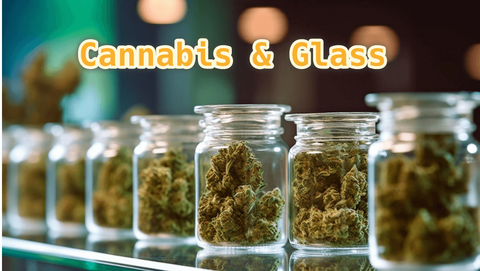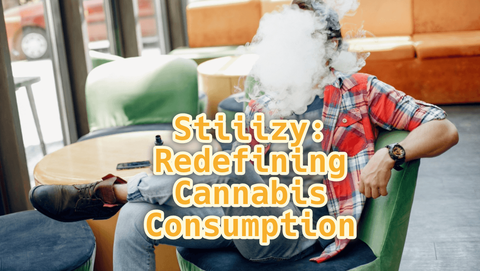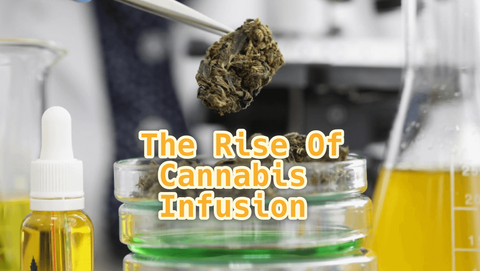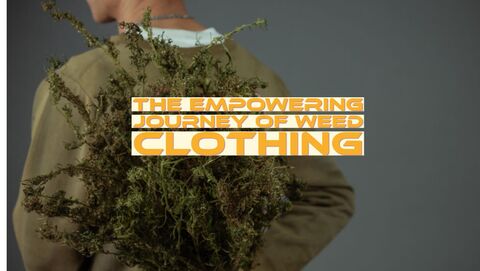Latest Blog Posts
Top rated
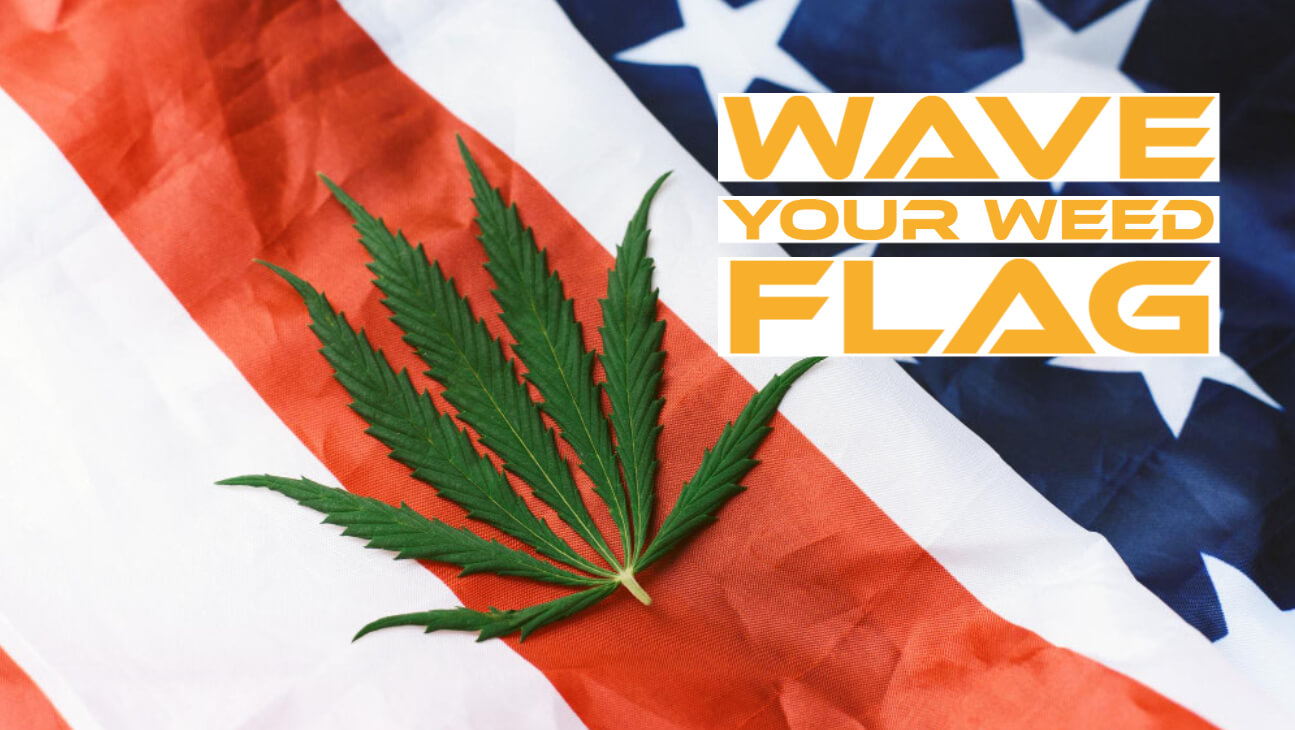
Wave Your Weed Flag
The expression "wave your weed flag" can have various meanings depending on who you ask. In all of its various forms, including inhaling it through joints and blunts, vaping it, and taking it in edible form, marijuana use has entered the mainstream in recent years. Some people see it as a call to celebrate cannabis culture and the multitude of different ways that individuals might use marijuana.
Legalization of marijuana, according to its supporters, would result in a multitude of positive outcomes, such as an increase in revenue for federal, state, and local governments, a decrease in the number of arrests and imprisonments, and an expansion of access to medical marijuana for people who have a real need for it. However, there are also concerns regarding the possible adverse effects of using marijuana, particularly for vulnerable populations such as adolescents and individuals who have mental health disorders. Specific individuals can make a political message in favor of the legalization of marijuana by raising the "weed flag."
These concerns focus on the potential for marijuana use to cause harm. Additionally, there are questions regarding how to control the use of marijuana and how to enforce laws regarding driving while under the influence effectively. In spite of these problems, there is a growing wave of support for the legalization of marijuana, with an increasing number of states and countries adopting a more permissive approach to the regulation of marijuana.
Whether you wave the weed flag in favor of cannabis culture, legalization, or social justice, it is evident that the debate around marijuana is evolving rapidly and that the future of marijuana policy is likely to be affected by a wide range of social, political, and cultural issues. This is the case regardless of whether you are waving the weed flag in support of cannabis culture, legalization, or social justice.
Background On The Prohibition Of Marijuana
The history of marijuana prohibition may be traced back to the beginning of the 20th century when a number of states began to enact legislation intended to restrict the use of the substance and its sale. Marijuana usage was connected with immigrant populations and with African Americans, who were viewed with mistrust and terror by many white Americans of the period.
As a result, these restrictions were frequently driven by a combination of moral and racial concerns. Marijuana became a federal crime with the passage of the Marihuana Tax Act in 1937, which was enacted by the federal government and effectively made the possession of marijuana as well as its sale a criminal offense.
This rule was predicated on allegations that were mostly false regarding the negative consequences of the drug, and it was significantly influenced by anti-marijuana propaganda operations that various government agencies and commercial organizations had carried out. The prohibition of marijuana became more deeply rooted in American society throughout the course of the subsequent several decades.
This was accomplished by implementing a number of laws and policies that made possession of the substance and usage of it subject to severe penalties. However, in recent years there has been a growing push to reform marijuana laws and legalize the drug for both medical and recreational use. This reform and legalization movement has co-occurred.
Numerous supporters claim that the prohibition of marijuana has resulted in more negative consequences than positive ones and that the legalization of marijuana would represent a more effective and humanitarian approach to the regulation of drugs.
The Case For Legalization
Over the course of the last few decades, there has been an increasing push toward the legalization of marijuana all over the world. This campaign has been motivated by a variety of factors, including shifting societal attitudes toward the use of marijuana, worries about the social and economic consequences of marijuana prohibition, and rising evidence of the medical advantages of marijuana.

Patients who are in need of medical marijuana would have easier access to it, it would be less of a burden on the criminal justice system, and there would be fewer risks connected with unregulated marijuana sales on the black market. In addition, legalization proponents claim that it could decrease the harmful impact that the prohibition of marijuana has had on marginalized communities, particularly communities of color, which have been disproportionately affected by the war on drugs. These are just some of the arguments made by supporters of marijuana legalization.
While legalization proponents point out that regulation and education can help reduce the hazards associated with greater marijuana use and the associated health problems, opponents of legalization claim that it could lead to increased rates of marijuana use and the health problems related to its use. The tide of support for the legalization of marijuana shows no signs of decreasing, with an increasing number of states and countries investigating new approaches to marijuana policy.
Benefits Of Weed Legalization
The advantages of legalizing marijuana are numerous and diverse, and its supporters maintain that doing so would have a beneficial effect on a wide variety of problems. The economic boost that legalization might provide is one of the potential benefits that is potentially the most substantial. This is because legal marijuana markets have the ability to generate large tax revenue and offer new job possibilities. In addition, the illegal sale of drugs on the black market is linked to a number of negative consequences, including violence and organized crime, which could be mitigated if drugs were legalized.
Legalization could also help address the issue of racial disparities in the drug enforcement system. People of color are disproportionately affected by marijuana prohibition; therefore, legalization could assist in solving the issue of racial inequalities in drug enforcement. In addition, legalization may serve to enhance public health outcomes since it would make it possible to regulate the substance more strictly and maintain a higher standard of quality control over it.
It may also help to minimize the number of persons who are imprisoned for drug-related offenses that do not involve violence. Last but not least, marijuana legalization has the potential to help eliminate the negative connotations that are linked to using the drug and to facilitate a more frank and open discussion around substance abuse and addiction.
Many people believe that the potential benefits of legalization outweigh the potential hazards and that it is time for a more logical and humane approach to drug policy. Although there are clearly problems and challenges connected with legalization, many advocates believe that the potential benefits outweigh the potential risks.
Risks Of High Potency THC
In recent years, there has been a growing movement in favor of legalizing marijuana. At the same time, however, there has been an increase in the number of people who are concerned about the potential adverse effects of using marijuana with a high THC content. THC is the principal psychoactive component of marijuana, and strains with a higher THC content tend to produce more powerful effects that endure for a longer period.
This can be especially worrying for vulnerable populations, such as adolescents and persons living with mental health disorders because these groups are more likely to be affected. The consistent use of marijuana, especially at a young age, has been demonstrated in studies to have a deleterious impact on cognitive function, memory, and mental health.
Additionally, some studies have suggested that marijuana with a high potency may be more likely to produce psychosis in persons who are already susceptible to its effects; nevertheless, this is still a contentious topic among academics and is the subject of ongoing debate. Supporters argue that regulation and education can assist in lessening these hazards of marijuana legalization.
Still, opponents of marijuana legalization contend that these measures might not go far enough to protect vulnerable populations. It will be vital to carefully analyze these concerns and design policies that put public health and safety at the forefront as the marijuana business continues to expand and develop in the years to come.
Impaired Driving And Marijuana
Concerns regarding the enforcement of laws related to impaired driving have grown in recent years as a direct result of the widespread decriminalization of marijuana use across the globe. Although there are established standards for testing individuals who are suspected of driving under the influence of substances, discovering and prosecuting impaired driving due to the use of marijuana can be a more challenging endeavor.
Since THC can stay in the body for longer lengths of time than alcohol can, a positive test result does not necessarily indicate that the driver is now intoxicated, even if the test was taken recently. In addition, the technologies that are used to identify marijuana use, such as testing saliva or blood, can be more invasive and time-consuming than the breathalyzer tests that are used to detect alcohol use.
There is also an ongoing controversy regarding the quantities of THC that should be considered to be legally impaired, with some countries preferring a zero-tolerance policy while others allow for some degree of THC to be present in a driver's system. Even if there isn't a universally accepted method for identifying and prosecuting drivers who are impaired as a result of using marijuana, it is clearly evident that law enforcement agencies will need to continue developing new techniques and methods in order to keep the roads safe for all drivers.
This may involve investing in new testing technologies, increasing the amount of training for law enforcement agents, and working with lawmakers to craft rules and regulations that strike a balance between ensuring public safety and allowing individuals to maintain their rights and freedoms.
How Will Police Be Able To Tell If I'm Driving Under The Influence?
The issue of driving under the influence of marijuana is one of the most significant concerns regarding the legalization of marijuana. There is currently no simple and reliable means to test for impairment caused by marijuana use at the side of the road, in contrast to alcohol, which can be consistently detected using a breathalyzer test.
Blood tests are able to determine whether or not THC, the psychoactive component of marijuana, is present in a person's system; however, these tests are not always reliable for determining whether or not a person is impaired. Due to the fact that THC can persist in a person's system for days or even weeks after usage, it can be difficult to tell whether or not a person is genuinely impaired at the time when testing is being conducted.
In fact, a number of studies have shown that chronic marijuana users may build up a tolerance to the intoxicating effects of THC, which further complicates the issue of determining whether someone is impaired.

In response to these issues, several jurisdictions have developed specific drug recognition programs that train police officers to spot indicators of marijuana impairment, such as bloodshot eyes, slower reaction times, and poor coordination. These programs have been implemented in order to combat the problem. Nevertheless, these procedures are costly and time-consuming, and several opponents have questioned the dependability of the results they provide.
In the end, determining whether someone has been impaired by marijuana will probably call for ongoing research and the development of new testing procedures. Additionally, a continued emphasis should be placed on educating the general public about the dangers of operating a vehicle while under the influence of marijuana.
Regulating Marijuana Use
The legalization of marijuana in more and more countries throughout the world has sparked continuous discussions over the most effective methods for controlling the substance's distribution and consumption. Concerns have been raised regarding the possible adverse impact that legal marijuana could have on public health and safety, despite the fact that many people who support legalization say that regulation can help lessen the harmful effects caused by the unregulated black market for marijuana.
Finding a middle ground between concerns for the general public's health and respect for individual freedoms and rights is one of the most challenging aspects of regulating marijuana use. Some people believe that excessive regulation can restrict individual liberties, while others believe that excessively permissive control can lead to an increase in the number of people using marijuana and the associated health issues.
Given the variety of goods already available on the market, including edibles, concentrates, and other THC-infused items, one of the critical objectives of regulation is to guarantee that marijuana products are safe and appropriately labeled. However, this can be a difficult task to do given the breadth of products currently accessible. Furthermore, there is an ongoing discussion regarding the sorts of regulation that are most effective, with some jurisdictions opting to regulate marijuana in the same way that alcohol is regulated, while others take a more conservative approach.
Finding a middle ground between concerns about public health and individual rights and freedoms will, in the end, call for continuous conversation and collaboration between policymakers, public health professionals, and industry players. Overall, it's necessary and possible to design legislation that serves to limit the harmful impacts of marijuana usage, while at the same time protecting individual liberties and the public's health and safety.
Shifting Cultural Attitudes
There has been significant movement in the social and cultural attitudes around the use of marijuana over the course of the last few decades. Marijuana, which was historically stigmatized and connected with criminal activity, is now increasingly recognized as a popular and socially acceptable recreational substance. In the past, these associations were not the case. This change in view has been driven in part by changing public opinion, with surveys showing that a growing percentage of individuals support the legalization of marijuana for recreational use.
At the same time, portrayals of people using marijuana in movies, television shows, and music have been increasingly commonplace in recent years, which has contributed to the normalization of the drug's consumption. This altering societal perception of marijuana has also had an impact on public policy, with more and more jurisdictions legalizing marijuana for both medical and recreational use. This trend is expected to continue in the foreseeable future.
It is important to note that concerns have been raised concerning the potentially harmful implications that this shift in cultural norms may have, particularly on younger generations. Some people are concerned that the legalization of marijuana usage may lead to a rise in the number of adolescents who use the drug, which could adversely affect their cognitive development and mental health.
Some people believe that the shift in society's attitude toward marijuana is a beneficial development because it gives people more freedom and autonomy if they choose to use it in a responsible manner. It will be vital, as the societal attitude toward marijuana continues to shift, to carefully assess both the possible advantages and risks of marijuana use and to design policies that strike a balance between individual freedoms and concerns about public health and safety.
Can I Smoke Pot On My Private Property In A Clear Public View?
Many people are interested in these questions: Can I smoke pot on my private property in a clear public view, such as sitting in a chair on my front lawn — even if children are just a few feet away? The question of whether or not it is acceptable to smoke marijuana on private property while the general public is present can be a complicated one and varies widely from state to state. In some locations, smoking marijuana on private property is permitted so long as it is not visible to the general public.
When it comes to smoking marijuana in public places where there is a possibility that children will be present, this debate is very heated. Many people believe that adults, despite having the legal right to consume marijuana on their own property, nevertheless have the moral need to ensure that their behavior does not subject younger people to the health effects of secondhand smoke or put them in any other kind of danger. However, in other areas, this behavior is strictly prohibited under any circumstances, regardless of whether or not it is visible to the general public.
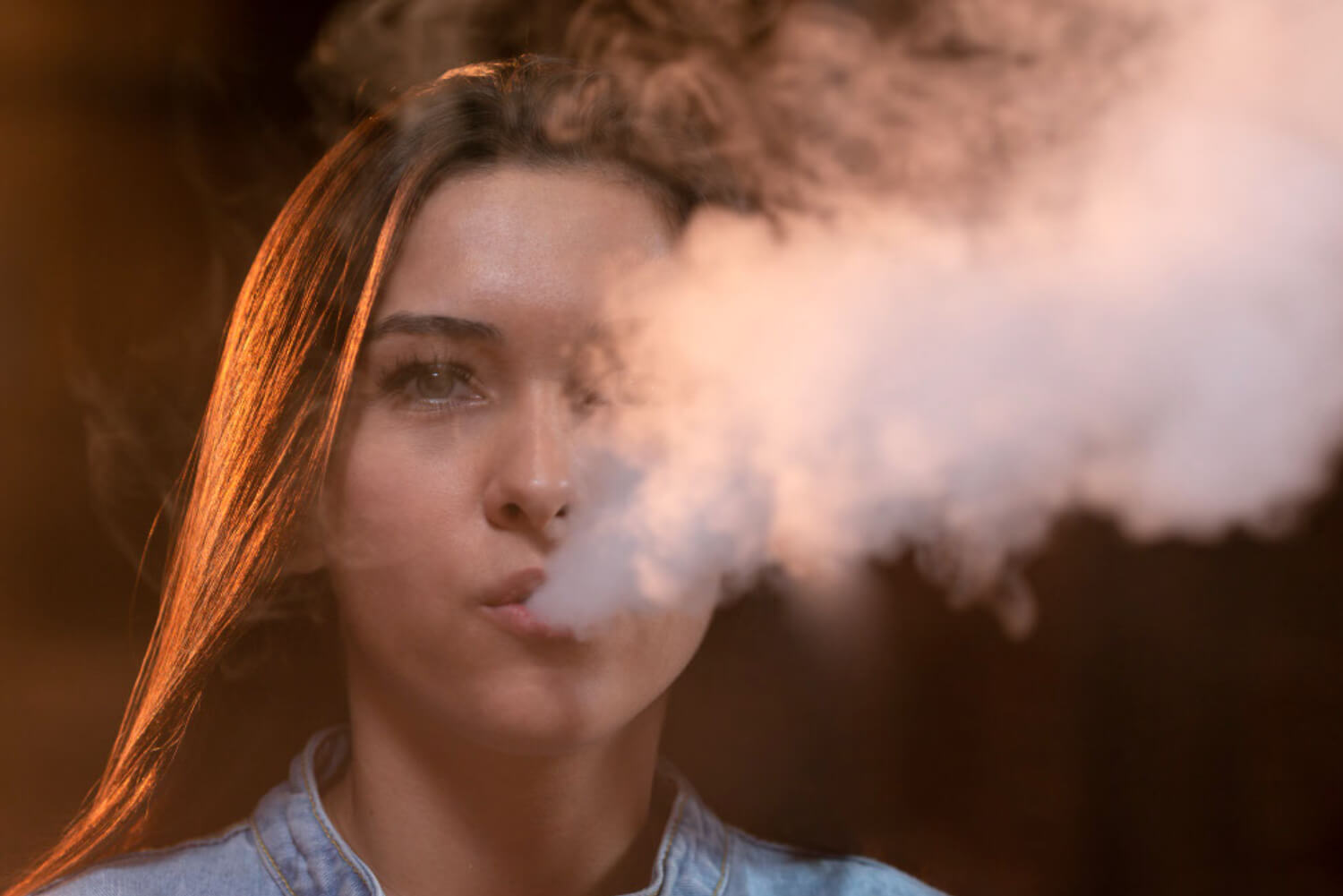
Certain regions of the country have passed laws that make it illegal to smoke marijuana in the presence of children. These laws might specify that smoking marijuana can only take place in enclosed locations or that it must be done away from places where children are likely to be present. Some people have chosen a more hands-off approach, depending on personal judgment and good old-fashioned common sense to decide whether or not smoking marijuana on private property is acceptable in a given circumstance.
Finally, whether or not it is permissible to smoke marijuana on private property in plain view of the public will rely on a variety of circumstances, such as the laws and rules of the surrounding community, as well as the judgment and responsibility of the individual. It is vital for individuals to be informed of the regulations in their area and to take efforts to ensure that their use of marijuana does not negatively affect those around them.
How Much Will I Be Allowed To Grow At Home?
The amount of marijuana an individual is permitted to cultivate on their own property hugely differs from one state to the next. In some areas, people are allowed to grow a certain number of plants in their homes for their own personal consumption, while in other areas, home cultivation of any kind is wholly prohibited. In states where growing cannabis at home is permitted, the amount of cannabis an individual is allowed to cultivate at home is frequently proportional to the number of plants they are authorized to grow.
For instance, residents of certain states in the United States are permitted to cultivate a maximum of six plants for their own personal consumption, whereas residents of other states are allowed to grow a maximum of twelve plants. In addition, it is usual for local governments to impose restrictions on the total amount of marijuana that can be cultivated in a household, irrespective of the number of plants that are grown.
Many regions not only put limits on the total amount of marijuana that can be cultivated at home but also establish severe regulations regarding the time of day and the location where the cultivation process can take place. For instance, certain states mandate that cannabis be grown at home within enclosed rooms, while others make it illegal to cultivate the plant in areas that are visible to the general public.
Individuals must ensure that they are in accordance with any applicable limits for the home growing of marijuana and to be aware of the rules and regulations in their territory addressing the production of marijuana at home. If you fail to comply, financial fines, legal penalties, and other repercussions may occur.
Can I Sell Any Pot That I Grow? Can I Give It Away As A Gift?
The question of whether or not it is permissible for people to sell or give away marijuana that they have grown themselves is a tricky one that differs from state to state. It is possible for individuals to legally sell or give away marijuana that they have grown for their own personal use in certain locations, yet in other areas, any and all sales or transfers of marijuana are considered to be illegal.
There may be limitations placed on who is permitted to sell or transfer marijuana in areas where doing so is legal, as well as limits placed on the amount of marijuana that can be sold or transferred and the locations in which such transactions can take place. For instance, persons in some areas of the United regions are permitted to give away small amounts of marijuana to other adults on hand, but they are not permitted to sell it without a license.
This is because the sale of marijuana is considered to be a criminal offense. In some locations, individuals are permitted to sell small amounts of marijuana that they have grown themselves, but to do so, they are needed to obtain a license or permit from the government. This is the case even in locations where marijuana use is legal. It is vital for individuals to ensure that they are in accordance with any relevant restrictions and that they are aware of the rules and regulations in their area addressing the sale and transfer of marijuana.
It is also necessary for individuals to be aware of the laws and regulations in their region regarding the cultivation of marijuana. Additionally, individuals must evaluate the potential hazards and ethical implications of selling or giving away marijuana, mainly if it is provided to people who may be vulnerable or at risk of harm. This is especially critical when the people receiving the marijuana are at risk of being harmed.
Can I Go To The Store And Buy It For A Friend Who Then Pays Me Back For The Cost?
Depending on where you live, it may or may not be against the law to purchase marijuana on behalf of another person. It is possible that the purchase of marijuana for others, in addition to one's own consumption, is prohibited in some locations, while in others, it may be lawful under specific circumstances. For their cannabis use, many people go to cannabis dispensaries.
For instance, in some states in the United States, it is legal to purchase marijuana for another person, provided that person is a registered medical marijuana patient and has chosen the purchaser as their caregiver. However, in most regions, it is against the law to buy marijuana on behalf of another person, regardless of whether or not the recipient is an adult and intends to pay back the cost of the transaction. It's gov means, and doesn't matter how much you like vaping cannabis.
Participating in such acts may result in financial fines, other legal penalties, and more repercussions. It is highly recommended that people only buy and use marijuana for their own personal consumption and that they abstain from engaging in any actions that could be construed as illegal or unethical.
Will The Ingredients For Blended THC Products, Such As Edibles And Vape, Be Listed?
Producers of THC products, like edibles and vape cartridges, are required to list the ingredients and dosages on their products in accordance with legislation in place in several different countries where the use of marijuana is permitted. This is done to ensure that consumers have access to reliable information about the products they are eating and to help prevent accidental overconsumption and other potential health problems. With this, you'll skip some health issues even with excessive tobacco smoking and its symptoms. This helps guarantee that consumers have access to accurate information about the products they are consuming. However, there are still specific places in which these restrictions have yet to be implemented or are not strictly enforced, making it more difficult for customers to know exactly what they are putting into their bodies. In addition, even in countries that have stringent rules in place, there may still be some products on the market that need to have appropriate information or labels, putting customers in danger.
.jpg?1680801380847)
Before eating THC products, it is essential for folks to be aware of the possible dangers involved and to have thoroughly read all of the product labeling as well as the information concerning the components that make up the product. In addition, regulators and manufacturers need to collaborate to ensure accurate and comprehensive information is easily accessible to customers to encourage consumers to make safe and responsible use of the products they sell.
Current State Of Marijuana Laws Around The World
Over the last few years, countries worldwide have been reevaluating their views on drug policy, which has resulted in a rapid shift in the legal framework governing marijuana. Although marijuana is still considered illegal in many areas of the world, an increasing number of countries have either decriminalized or legalized the drug.
As a result, there has been a significant amount of discussion and controversy around the topic. You will investigate the present status of marijuana legislation all across the world and look at the various methods that various nations are taking to the challenging issue of legalizing marijuana.
In the United States, marijuana laws have been in a state of flux for many years, as different states have taken different approaches to the drug. Even though marijuana is still against the law at the federal level, an increasing number of states have made it lawful for adults to use it for recreational and medical purposes.
As of the year 2023, the use of marijuana for recreational purposes is allowed in 17 states and the District of Columbia, while the use of marijuana for medicinal purposes is lawful in 36 states. Yet there is still a significant amount of difference in how different states govern the substance; as a result, this has resulted in a considerable amount of uncertainty and debate.
Canada And Europe
2018 marked the year that Canada became only the second nation in the world after Uruguay to legalize marijuana for recreational use (after Uruguay). It is generally accepted that the legalization of marijuana in Canada was a good decision. As a result, the country has been able to generate significant tax revenue from legal sales of marijuana while simultaneously reducing the risks associated with the illegal distribution of drugs.
Concerns have been raised, however, about the implications of legalization for health and safety, particularly regarding the possibility of increased use among vulnerable populations such as adolescents and people with mental health conditions.
The circumstances surrounding the legalization of marijuana in Europe are extremely diverse from one country to the next. While some nations have gone so far as to legalize or decriminalize the substance, others continue enforcing strict prohibitionist policies.
For instance, although it is technically illegal in the Netherlands, the government has adopted a policy of toleration, which allows for the sale and use of small amounts of the drug in certain designated "coffee shops." In a similar vein, the possession and use of all drugs (including marijuana) became legal in Portugal in 2001, with an emphasis on harm reduction and public health as the driving forces behind the decision.
South America
In 2013, Uruguay became the first nation in the world to decriminalize marijuana use for recreational purposes. Although the country has experienced some difficulties in the process of putting its new drug policy into effect, it has also seen some positive outcomes, such as a decrease in the dangers associated with the trade of illegal drugs on the black market and the development of new employment opportunities in the marijuana industry that is legal. Uruguay is located in South America.
Although they have not yet reached the point of decriminalizing marijuana use, other nations in the region, such as Colombia and Argentina, have also moved in the direction of liberalizing their drug policies in recent years.
Asia
Marijuana is still treated as a criminal offense in the majority of Asian countries; those caught in possession of it or using it face harsh penalties. There are, however, indications that this may soon change, most notably in nations such as Thailand and South Korea, where there has been a growing interest in the use of marijuana for medical purposes.
In 2018, marijuana was approved for use in Thailand for medical purposes, and the country's government has been looking into the possibility of also approving the drug for use in recreational settings. CBD, a non-psychoactive component of marijuana, is being used for medical purposes by an increasing number of people in South Korea, even though the use of marijuana for recreational purposes is still against the law.
Mexico
The Mexican Senate voted in favor of decriminalizing marijuana for recreational use in November 2020, but the measure has not yet been passed by the Chamber of Representatives, which must do so before it can become law. Should it become law, individuals over 18 would be permitted to possess up to 28 grams of marijuana and grow up to six plants for their own personal use if the bill is passed.
Additionally, it would establish a regulated market for the sale of marijuana, complete with licensed producers and retailers. The bill is widely regarded as a significant advance toward the goal of reforming drug policy in Mexico, a country that has been beset by drug-related violence and corruption for decades.
Thus, the current state of marijuana laws worldwide varies significantly from country to country because various nations take different approaches to drug policy. While some nations have gone so far as to legalize or decriminalize the substance, others continue enforcing strict prohibitionist policies.
As more and more nations struggle with the social, economic, and health implications of drug policy reform, the debate over the legalization of marijuana is likely to continue for many years to come. In the end, whether marijuana use should be legalized or prohibited is a complicated one that does not give itself to simple solutions.
The Bottom Line
The discussion over the appropriate policy for marijuana is swiftly advancing, and there is an increasing level of public support for the legalization of marijuana. This support can be attributed to a number of different factors, including shifting attitudes in society, worries about the social and economic costs of prohibition, and the fact that marijuana has benefits in the medical field.
There are a multitude of advantages to legalization, some of which include an increase in tax income, the creation of new job possibilities, a reduction in the amount of violence involved with the trade in illegal drugs, and equalization of racial imbalances in the administration of drug laws. Additionally, legalization may assist in enhancing public health outcomes and lowering the number of imprisoned non-violent drug offenders.
On the other hand, those who are against legalization are concerned about the potential adverse impacts that using marijuana could have, particularly for members of vulnerable groups. These issues must be addressed through the processes of legislation and education. In the end, whether you wave the weed flag in favor of cannabis culture, legalization, or social justice, the future of marijuana policy is likely to be influenced by a wide range of social, political, and cultural issues. As a result, it is essential to keep the discussion going and strive toward finding a solution that is in everyone's best interest.
Disclaimer: This material is for informational purposes only and should not be relied on for legal, medical, financial, or any other form of professional advice.






